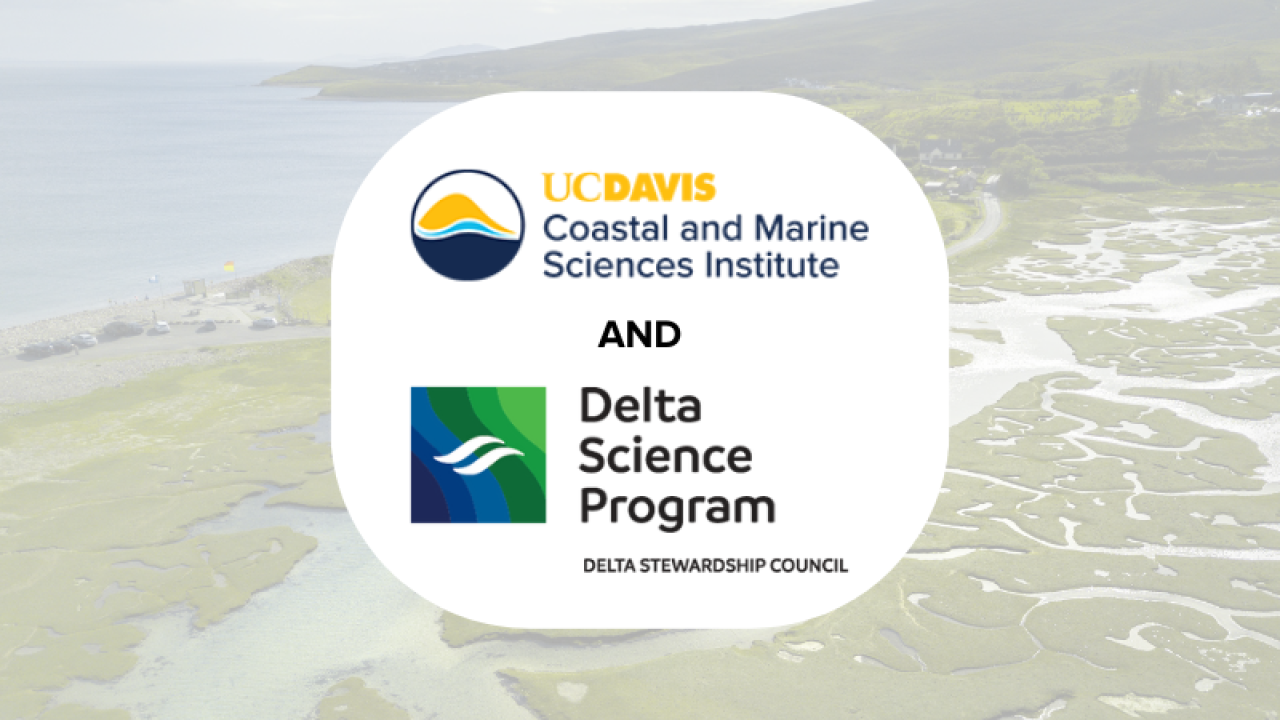
Event Date
Among the goals of habitat restoration are the recovery of a particular set of ecological functions and services. Trying to understand and predict the trajectory and pace of recovery raises important questions for resource managers. Answers to these questions are important for restoration decision-making and the development of monitoring and assessment plans.
The traditional view of ecosystems is that they predictably return to their pre-disturbance state or trajectory following disturbance or alteration. Recently, an increasing number of studies indicate that some ecosystems may experience multiple ‘alternative states’ and possibly ‘stable equilibria’ where change from one state to another may be discontinuous, abrupt, and have multiple trajectories. How can scientific understanding of ecosystem multiple states more effectively inform restoration and management, and vice versa?
Addressing these questions requires scientists to understand challenges that managers confront in making decisions about ecosystem restoration. They also require managers to understand the methods available to diagnose ecosystem changes and associated uncertainties. To achieve this exchange, this one-day symposium brought together scientists and managers considering multiple stable states in a wide variety of ecosystems. The central goals of the symposium are to (1) inform scientists about decision-making processes and real-world challenges in ecosystem management and restoration, (2) inform managers of the latest decision support tools emerging from science on ecosystem multiple stable states, and (3) promote dialogue and collaboration among scientists and managers working on the Delta-estuary-marine ecosystem continuum.
Speakers:
Opening remarks - Delta Science Program, Coastal and Marine Sciences Institute
Part 1: Science, Management, Restoration, Monitoring, and Policy
Morning keynote – Alan Hastings, UC Davis
Part 2: Management perspectives across systems - Ted Grosholz (Moderator), UC Davis
Delta – Jim Cloern, US Geological Survey
Freshwater – Fred Sklar, South Florida Water Management District
Kelp forest – Rietta Hohman, CA Department of Fish and Wildlife
Fish habitat restoration – Ted Sommer, CA Department of Water Resources
Part 3: Scientific advancements and key unknowns - Xiaoli Dong (Moderator), UC Davis
Rivers, lakes, and streams – Albert Ruhi, UC Berkeley
Terrestrial – Scott L Collins, University of New Mexico
Marine – Anne Salomon, Simon Fraser University
Estuary – Jim Morris, University of South Carolina
Part 4: Examples of threshold-based restoration: what has worked and what hasn’t? - Dylan Chapple (Moderator), Delta Science Program
Wetlands – April Robinson, San Francisco Estuary Institute
Eelgrass restoration – Kathy Boyer, San Francisco State University
Salt ponds – John Bourgeois/Dave Halsing, ESA/CA Coastal Conservancy
Marine – Jameal Samhouri, NOAA Northwest Fisheries Science Center
Part 5: Key management and policy unknowns: a path forward for science to better address management needs
Afternoon keynote – Katie Suding, University of Colorado, Boulder
Part 6: A path forwards: panel discussion with audience questions
Ted Grosholz (Moderator), UC Davis
Katie Suding, University of Colorado, Boulder
Jim Cloern, USGS
Fred Sklar, South Florida Water Management District
Anne Salomon, Simon Fraser University
John Bourgeois, ESA
Morning & afternoon keynote speakers
- Alan Hastings, Distinguished Professor Emeritus, UC Davis
- Katie Suding, Professor of Ecology, University of Colorado, Boulder
Management perspectives across systems
- Ted Grosholz, Professor and Swantz Chair in Cooperative Extension Specialist, UC Davis
- Ted Sommer, Lead Scientist. CA Department of Water Resources
- Jim Cloern, Senior Scientist, Water Resources, US Geological Survey
- Rietta Hohman, Education Specialist Greater Farallones National Marine Sanctuary
- Fred Sklar, Director and Section Administrator, South Florida Water Management District
Scientific advancements and key unknowns
- Xiaoli Dong, Assistant Professor, Environmental Science and Policy, UC Davis
- Albert Ruhi, Assistant Professor, Environmental Science, Policy, and Management, UC Berkeley
- Scott L Collins, Professsor, Dept of Biology, University of New Mexico
- Anne Salomon, Associate Professor, School of Resource and Environmental Management, Simon Fraser University
- Jim Morris, Distinguished Professor Emeritus, University of South Carolina
Examples of threshold-based restoration: what has worked and what hasn’t?
- Dylan Chapple, Adaptive Management Liaison, Delta Science Program
- April Robinson, Environmental Scientist, San Francisco Estuary Institute
- Kathy Boyer, Professor, San Francisco State University
- John Bourgeois, Restoration Ecology Program Manager, ESA
- Dave Halsing, Executive Project Manager, CA Coastal Conservancy
- Jameal Samhouri, Ecosystem Science Program Manager, NOAA
